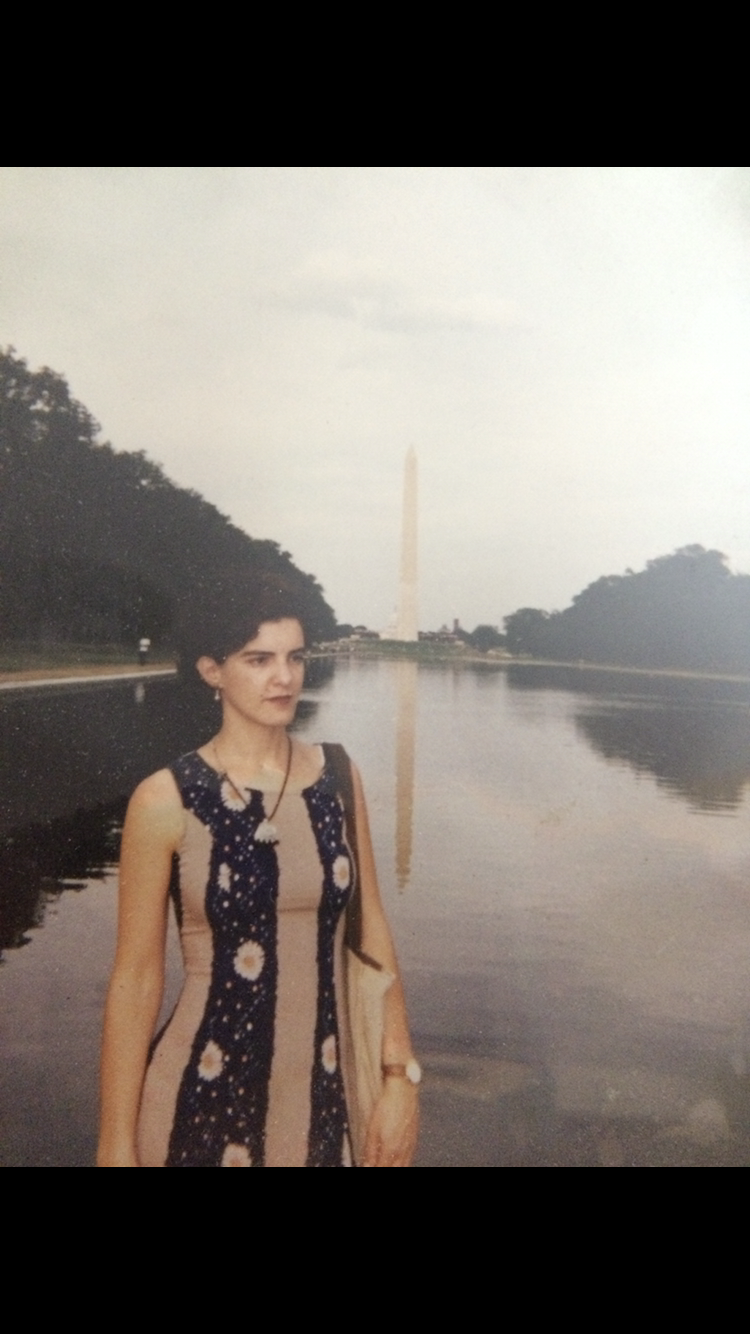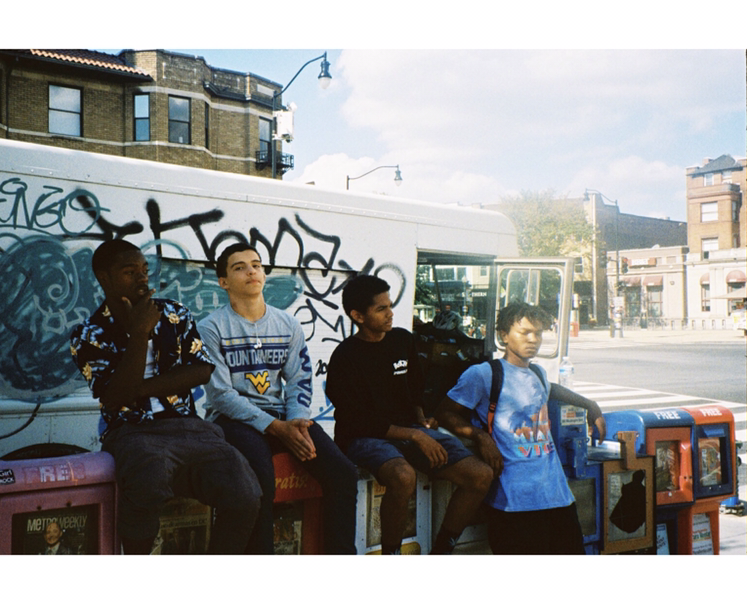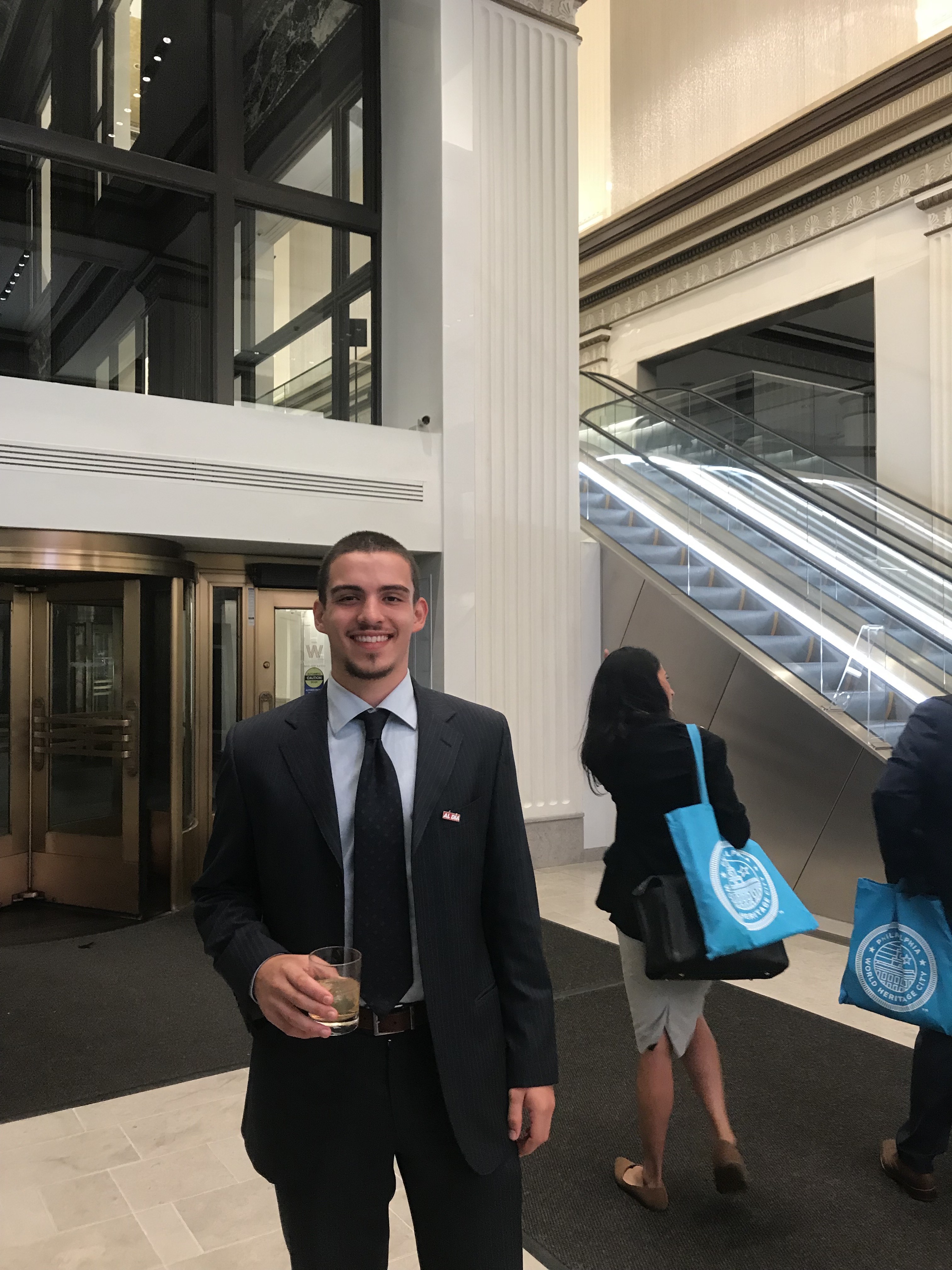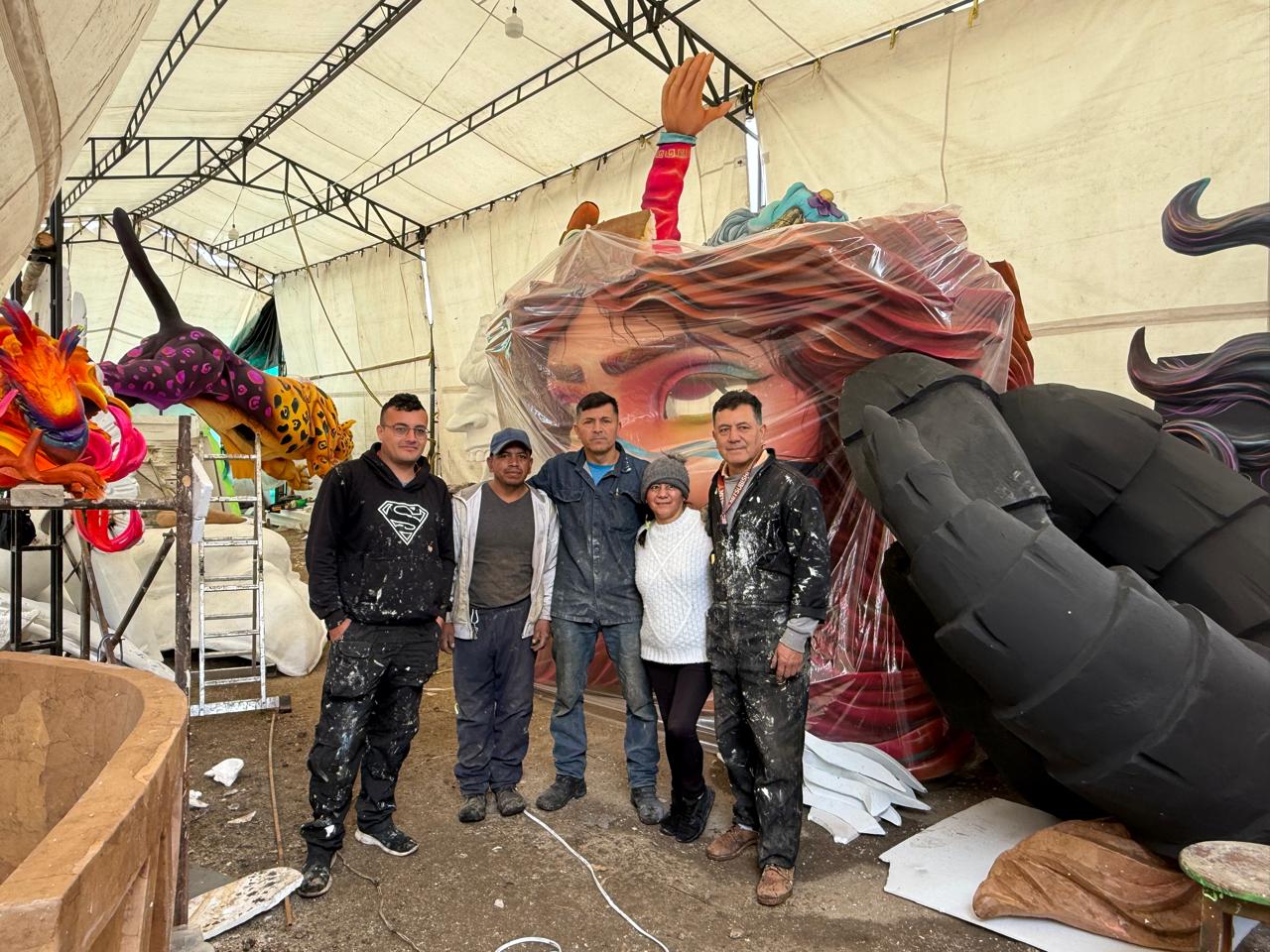
How Spanish saved my life
It took me until high school years to realize that Spanish was my biggest asset, and a deterrent from heading down the wrong path.
Cuéntame/Tell Me is our space for your stories, as U.S. Latinos. Click here for more information.
It was another normal day in seventh grade, and I had just returned home from drum practice at the local arts studio. My mom was making some food, and I was trying to explain how I had finally begun to read drum tab, but the words in Spanish escaped me. And like always, my mom pretended not to understand even a syllable in English as I struggled to find the right words.
Frustrated, my 11-year-old self blurted out: “Ama, I am tired of always speaking Spanish at home. I hate that I get in trouble every time I say a word in English.”
To which my mother replied, “Alaitz, don’t you understand that you have been blessed with the asset that is Spanish? You kids just don’t understand. The future will prove that Spanish is one of the greatest tools you could have ever asked for. Just you wait. It will open so many doors for you in the future”.
I owe a lot of things to my mother. Undying love, support and stability all come to mind. Yet recently, I have grown increasingly thankful for her insistence and dedication in ensuring my mastery of the Spanish language. It sure feels like I have come a long way since it all began.
Ever since I can remember, I have spoken Spanish in my home. It was my first and only language until around two or three years of age, when I started to attend preschool and pre-K. My mother would later explain her rationale for only speaking to me in Spanish: “Alaitz, don’t you understand that English was inevitably going to be your dominant language? After all, we live in the U.S. and you will be in constant conversation in English. It was best for you to start out with only Spanish because I knew your English would catch up.”
But I disliked being different, and it all started with my name. My full name as it appeared on the role call: Alaitz Kiko Ruiz-Arteagoitia. Every time a teacher would mispronounce my name I cringed, and I hated being known as that kid with the weird name whose family would only speak to him in Spanish. I chalk up my insecurities at a young age to the fact that I wanted to be like everyone else, just another American kid. Even the vast majority of the Hispanic kids who attended my school lacked proper Spanish-language mastery, and often spoke to their families in English. I hated not being able to say a sentence in English at home without being chastised and scolded. “Why the hell am I the only one living under such strict language norms? Everybody else has it way easier,” I thought.

I come from a unique cultural background. My mother is a first-generation immigrant from Spain, hailing from the Basque country. She grew up under the persecution of the Franco dictatorship. She is the only one in her family to come to this country, and she has now spent over half of her life here since immigrating during her college years — though she saved up any extra pennies to ensure we visited our family in Spain every summer. My mom is the most hard-working and studious individual I know. After having completed her five-year undergraduate studies in Spain, she was granted a student visa to complete her Masters at West Virginia University. From there, she went on to pursue her PhD in linguistics at the prestigious Georgetown University. Roughly 15 years of her life were dedicated to higher learning. Lord knows I could never, but she has always been a great role model and inspiration to excel in school.
My dad, on the other hand, is a second-generation Mexican-American. My grandfather moved to El Paso, Texas, at a young age, and my father was the youngest of 11 children. Unfortunately, cultural white-washing occurred, as my dad grew up without many aspects of Mexican culture, including speaking Spanish. It was thanks largely to my mother that my father learned Spanish. As you will come to understand, my mother has been a great teacher to many.
Add another element to my unique cultural upbringing: I grew up a proud local resident of Washington, D.C. More specifically, I was born and raised in Adams Morgan, a neighborhood known for its cultural diversity as it relates to Latino and other brown communities. Picture one of the epicenters of Latino culture in the U.S.: Salvadorans, Mexicans, Guatemaltecos, Boricuas, Dominicanos and many more all congregating in a corridor of neighborhoods that local D.C. folks refer to as Uptown (Upt). The letters Upt are not tattooed on my body by coincidence — they embody my unique upbringing and boastfully represent the area where I was molded into a young man.
As with most inner-city neighborhoods, there are setbacks and obstacles most young men and women face in terms of scholarly and professional development. I was fortunate enough to attend the same bilingual program from pre-K to 8th grade, which expanded when I was in elementary school. However, middle school was where I first came to terms with the vast inequalities that plagued minorities in D.C., specifically within the Latino community. Wannabe gang bangers, young women having pregnancy scares, and lack of financial stability for many became glaringly apparent as I morphed into my pre-teen self. I steered clear of trouble for most of middle school, but the danger of falling down the wrong path was clear and growing imminently as I got older.

In my early childhood, I stayed within the confines of my own little world created by my family, household and neighborhood community. My pre-adolescent years were the age in which I gained exposure to the two starkly different worlds that I was surrounded by. This notion was best highlighted for me in school. A good amount of my friends in elementary school resided in a set of neighborhoods that were very wealthy and well off. I would almost exclusively go to their houses for “playdates,” and was in constant awe of the gargantuan houses they lived in. I remember being especially excited at the variety of snacks and food those not-so-humble abodes contained: “Ama why don’t we have all the snacks they have? How come they have houses with three or four stories? If they have three cars, don’t you think we should at least have one?”
I now lament having pestered my mother with such materialistic desires and questions, but those examples were indicative of my coming to understand that not everyone could afford such a lifestyle.
The rest of us who did not live in the affluent neighborhoods lived on the other side of a large national park that conveniently bisected the NW quadrant we all resided in. This is where I saw the unfortunate circumstances many of my Latino peers had to endure. For starters, some families of students were undocumented, and in several cases the child was, too. This alone posed a seemingly insurmountable set of obstacles related to job status and financial acumen.
Most of these families spoke broken Spanish to their children at best, meaning many students had to take Spanish reinforcement classes in addition to their ESL programs. You had students actively being recruited for the Mara Salvatrucha (also known as MS-13), putting them at risk of danger at such a young and fragile age. I would often see some of my peers’ fathers just hanging around the neighborhood, smoking K2 or cracking open a tall boy early in the morning. Almost all of the Latino students qualified for free and reduced lunch, and for many the bland, tasteless food represented a much-needed meal.
I knew of kids selling pills and other little hustles just to make some pocket change. We were often the culprits of blatant and unabashed thefts at the local 7-11, while others simply shopped with the money their parents gave them. There was an unspoken judgment that the Latino students were the “bad” kids, the raucous youths that got into trouble and suspended, the less educated and consequently lower performing demographic. While the school may have had a good idea, I felt that they did not truly see or understand many of the struggles these kids and their families had to go through.
I differed because I was one of the few in which neither worlds were my reality, giving me a truly detached perspective on this issue. My situation allowed me to further my unique view on how life could be so different in two areas less than a couple miles away from each other.
RELATED CONTENT
My mother, aware of the many inefficiencies associated with District of Columbia public schools, was determined to send me to a prestigious magnet school. I was indifferent to my choice of high school, as I had friends going to every school that was an option for me.
At this high school, I struggled to gain my footing amongst the city’s “elite” students. Truth be told, it was an unfamiliar and often hyper-competitive environment that I disliked for a high school setting. My mother made it a priority for me to able to take the AP Spanish test without actually taking the course itself. Her request was approved after she swiftly lobbied it to the school. I scored a 5 on the test and as a result I received transferable college credits. Another blessing that was all Ama’s doing.
By my sophomore year, my affinity for my school had deteriorated to none, and a couple of suspensions later I would complete my transfer to my neighborhood school. Despite having attended such an acclaimed institution, I had grown increasingly aware of the inequalities that affected many minorities in my city. A close friend of mine was a victim of financial hardships and a disconnected family, as he dropped out at the age of 16 and was forced to single-handedly support and provide for himself and his grandfather. Situations like his will forever touch my heart and reaffirm the idea that I grew up with countless blessings.
But as my view on social injustices grew along with my age, so did possible wrong paths I could follow. The same is especially true for others in less fortunate situations than mine. For them, it was “I have to make do somehow” out of sheer necessity, versus my simple wanting to do so. Not having disposable income at a young age prompted me to follow footsteps that I should not have. Without getting into the intricacies of the world I was mixed in, harsh realities of the dangers and consequences would set in for me towards the end of my high school career.

I often felt like I was casted into two vastly different worlds, and I struggled with the fact I didn’t truly belong to either. I did not have to thrust myself into a lifestyle on a fast track to danger and surface level prosperity, and certainly did not feel comfortable in scaling the hyper-competitive, affluent and professional/educated field that was dominated by whites. I constantly felt like an outsider looking in. It took me many years to understand that I could carve my own path separate of any of the preset worlds I was exposed to at a young age.
I was at a major crossroads in terms of a mindset track and lifestyle, as my current one was not sustainable nor safe. On one hand, I could remain stagnant and stay at home, likely attending a community college. This would not help ground me or negate any looming distractions coming from the split life that I was living. On the flip side, I knew it was best for me to move out of the city and out of my comfort zone, which entailed getting into a financially feasible college/university.
The hard part was not getting in, but rather finding the right affordable higher learning institution. My grades spoke for themselves (again thanks to Ama for having pushed me so hard), and I highlighted my Hispanic heritage, bilingualism and biculturalism to the fullest extent. Spanish, again, proved to be my greatest asset and deterrent from heading down the wrong path, and it was not until high school that I became fully aware of it. Thanks to my mother and one of my high school counselors, I was able to get into Temple University on essentially a full ride, outside of living expenses. Once again, no matter what world I was mixed up in, Spanish had come through to save my life. And I began to take notice.
Four years later, I remain firmly entrenched in my studies as I prepare to graduate in May 2020. I have used bilingualism as one of my primary assets every step of the way as I build my professional resume. It is truly beautiful to see another language open so many doors in this country. I currently sit on the board for Temple’s chapter of the Association of Latino Professionals for America, and have ascended from an unpaid internship into a part-time Business Development position at AL DÍA News Media. I am so thankful to have been blessed with the ability to speak another language and live vicariously through my foreign cultures. No matter what I end up doing in life, I will always carry my ability to speak, write, read, comprehend, think and even dream in Spanish.
My relationship with Spanish will forever be intertwined with my love for my mother. I now relish any chance to speak Spanish I get; whether it be in the office at AL DÍA amongst diverse Latino individuals, or simply with a newly befriended Chilean classmate of mine. I love learning various dialects and adding different vernacular to my vocabulary, and I recall telling this friend of mine, “I never thought I would be so thankful to be able to speak to another peer in Spanish. My mother’s love for the language and countless teachings are really starting to rub off on me.”
I am forever grateful and indebted to my Ama beyond being a great mother: for being the greatest teacher and provider I could ever ask for.










LEAVE A COMMENT: